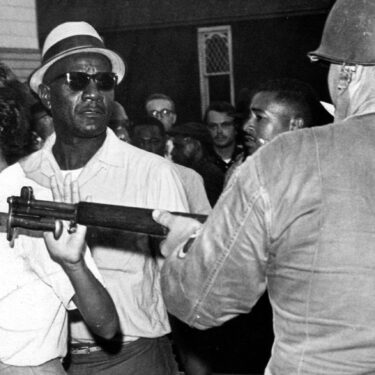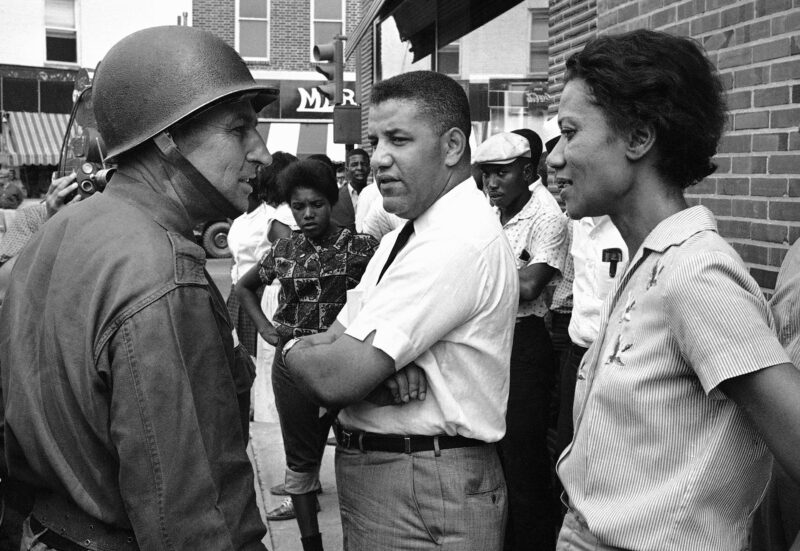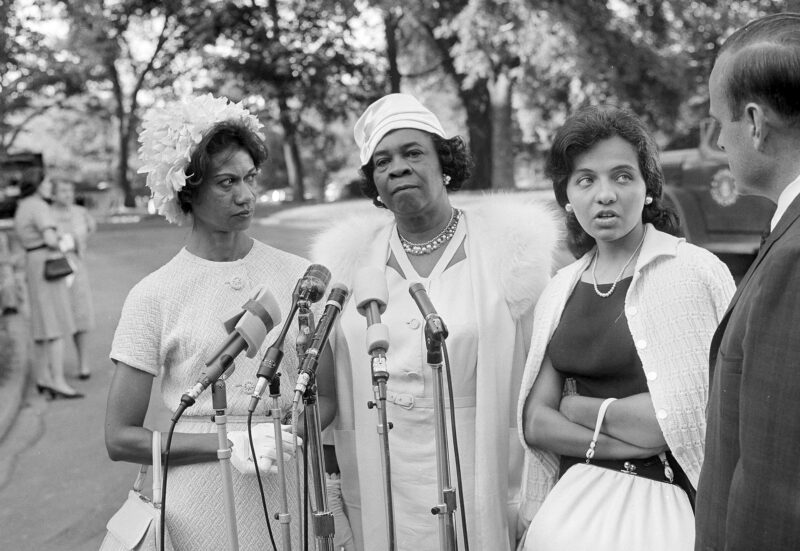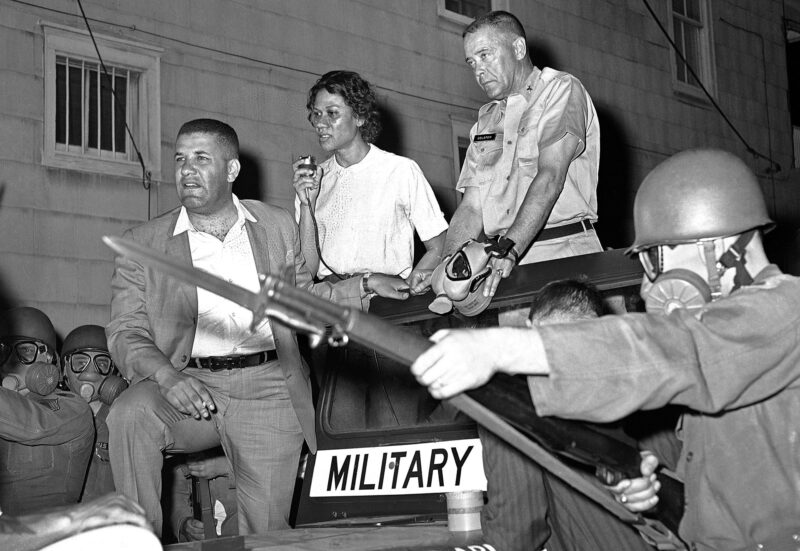Among the toughest obits to write on the fly are those for people who were hugely influential but rarely heard from in their later years. AP’s Brian Witte, however, was fully prepared when he got an exclusive tip on a Friday evening that prominent civil rights figure Gloria Richardson had died.
Witte, AP’s Annapolis, Maryland, statehouse correspondent, used carefully crafted, detailed prep and source work to break news of the death of the first Black woman to lead a sustained desegregation movement outside the South. South editor Pam Sampson then fast-filed the story with images,beating all the competition.
Thanks in part to a striking AP photo,Richardson symbolized fearlessness among civil rights activists: It shows her pushing away the bayonet of a National Guardsman during a 1963 protest in Cambridge,Maryland. She would also share the stage with Martin Luther King Jr. at the March on Washington, personally negotiate with Attorney General Robert F. Kennedy and help launch the Black Power movement. Then she all but disappeared.
Richardson’s life story had previously caught the attention of editor Mike Warren,who organizes obits for the South region,through AP corporate archivist Valerie Komor’s excellent blog,“Black Women of the Civil Rights Movement.” Warren pitched the obit prep to Witte and mid-Atlantic editor Steve McMillan with some urgency,since Richardson was 99 years old. Witte interviewed Richardson’s biographer,building enough trust for the author to email him with first word of her death. He persuaded the biographer to share family contacts,scoring quotes that forced many outlets to cite AP. He also alerted Photos, enabling Sampson to link the archival images within five minutes of the breaking story early Friday evening.
One of the many details Witte included spoke to the difficulties of being a powerful woman in a male-dominated movement: Richardson was allowed to say just one word before King’s famous speech — “hello” — before her microphone was taken away.
Witte built trust with Richardson’s biographer, who emailed him with first word of her death and shared family contacts.
A major national paper was two hours later publishing its own complete obit; another published two days later. The Baltimore Sun used AP’s story about the Baltimore native,while NPR,The Hill and People were among more than 300 websites using the AP. TheRoot.com,focusing on African Americans,cited AP. Social media interactions and reader engagement were both remarkably strong.
For insightful,resourceful reporting that puts Richardson’s significant legacy back in the public eye, Witte earns this week’s Best of the States award.
Visit AP.org to request a trial subscription to AP’s video,photo and text services.
For breaking news, visit apnews.com








